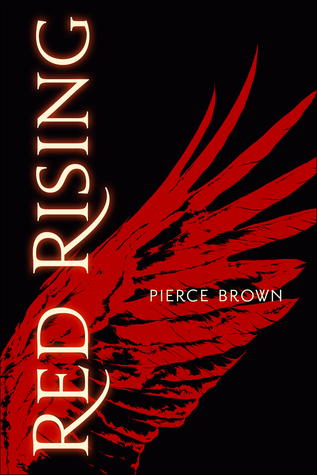How much of a sin is predictability? That sounds like a rhetorical question, but in this case, it's not. If a movie, a play, or a book telegraphs every single story beat from a mile away, and doesn't really bring much new to the table, does that necessarily mean there's something wrong with it, or can it be waved away as long as the property is well-written?
This question was put to the test when I finished my first book of the year: Pierce Brown's 2014 sci-fi novel, Red Rising, a YA book which is the first in a trilogy. It centers on Darrow, who toils in the mines on Mars. Society is broken down by color code, and while the Golds rule over all, Darrow and his fellow Reds are on the bottom rung. They're led to believe that they're working for a better future, but after Darrow's wife is killed for protesting the Reds' miserable lot in life, he discovers that the better future has already arrived, and he and his kin are not going to be offered one iota of it. A plan is hatched for him to infiltrate the Golds and bring them down from within, and off we go.
This first book, beyond establishing Darrow's backstory, also puts him into a cut-throat fight for supremacy in an arena against other kids. Sound familiar? This is what I'm trying to get at with my predictability question. Aside from the invention of the color-coded class system and some sci-fi dialogue/technology, there isn't a single plot element of Red Rising that isn't also found in the other books of the genre. Put The Hunger Games and Divergent into a blender, add a pinch of Ender's Game, and out pops a piping hot batch of this book. The friendships Darrow makes, the loyalties that are tested, the characters that don't make it to the end... You'll be able to guess every single one well before they occur. And yet...
I liked it. So what if it's not the freshest writing technique? It's still adept. The Hunger Games was popular for a reason, and Red Rising does an excellent job of capturing the same senses of dread and excitement, and of forcing its reluctant protagonist to fight for survival. So, I'm not going to dock it many points for its unoriginality, because in the final analysis, it's still a very entertaining read. What I will dock it points for is the mistakes its editor should have caught. A typo here and there is not a big deal. Misidentifying a character is.
The day I returned Red Rising to the library, the second book in the trilogy got released. The one review I've seen so far has given it extremely high praise, and called this first book an underrated gem. I'm going to be little more tempered. This was a fun book that I'm glad I read, and I'm pretty sure I'm in for the whole trilogy. But at the same time, I think we need to admit that it's a hell of a lot easier to run down a road that someone else has already paved for you.
Red Rising: B
Subscribe to:
Post Comments (Atom)




0 comments:
Post a Comment